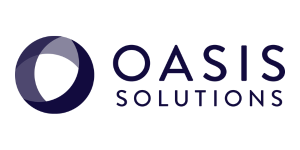Have you ever noticed that almost every report you read about a company that was hit hard by a cybersecurity breach inevitably mentions this small detail: Company ABC was running on outdated or patched software.
Company ABC’s IT professional knows that their older system is highly susceptible to a breach, yet they neglect to upgrade. Why does this happen? They fear the cost and time of an update or the risk that an upgrade of their current system could break something vital to their daily operations.
It’s the same case with legacy ERP systems, causing a hesitancy to upgrade by key decision makers. A system that is powerful enough to run your business smoothly and efficiently inevitably requires some level of rationalization.
Out of the box solutions only work for single-function applications, and even then they’re often complimented with plug-ins and integrations. An ERP system must have the ability to be tweaked and customized to meet its users workflows and needs.
What can Company ABC do? They can choose to rewrite their customized ERP system (which is time-consuming and costly) or they can move to the cloud: embracing a fully-customizable platform such as NetSuite, the #1 cloud ERP.
Founded in 1998, NetSuite is widely recognized in the industry as the first cloud computing software company. To put it simply, NetSuite was cloud before cloud was even a buzzword. Since its acquisition by Oracle in 2016, NetSuite has had access to Oracle’s resources in product development and sales, only strengthening its offerings.
Businesses love NetSuite because security enhancements, updates, patches, and new feature deployments are all dealt with by NetSuite, leaving the business’s complex customizations unchanged. Businesses also love that NetSuite’s true cloud solutions can be considerably lower than what they were formerly paying for maintenance and support on their on-premise software system.
See all NetSuite can do that your legacy system can’t in this quick demonstration.
In technology, evolution is significantly accelerated with the expectation that employees work remotely and on mobile devices, interfacing with the company’s systems and communicating in real-time. NetSuite makes this possible with its interactive code base unlike a legacy system that would require hundreds of hours of development work to create expensive add-ons. Companies need to be able to shift at the organization level as well: entering into new partnerships, expanding territories, and handling larger customer orders. With NetSuite, an organization has the true business agility to support scalable growth without having to re-engineer the software for the organization.
In business, you must also consider global governance regarding data protection, privacy information as it changes from territory to territory, and unending legislation changes that must be considered. The NetSuite platform adapts accordingly to comply with all these changes, from international tax schema to GDPR to U.S. 1099 changes.
Regardless of your business sector, from manufacturing to non-profit to service-based, NetSuite adapts with your business and scales with you as you grow.
Learn more about how your legacy system is holding your organization back and costing you money: 8 Ways Legacy ERP Harms Businesses


